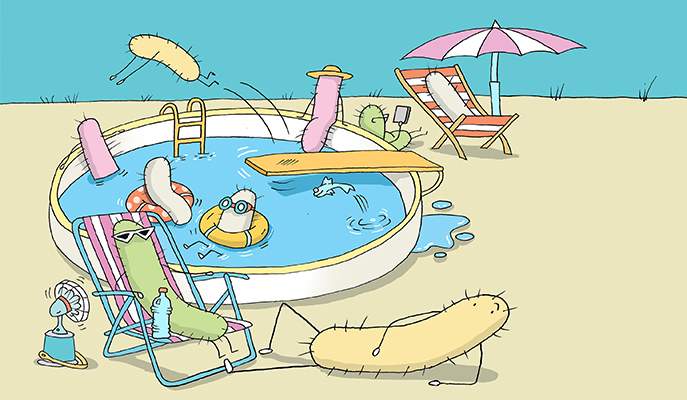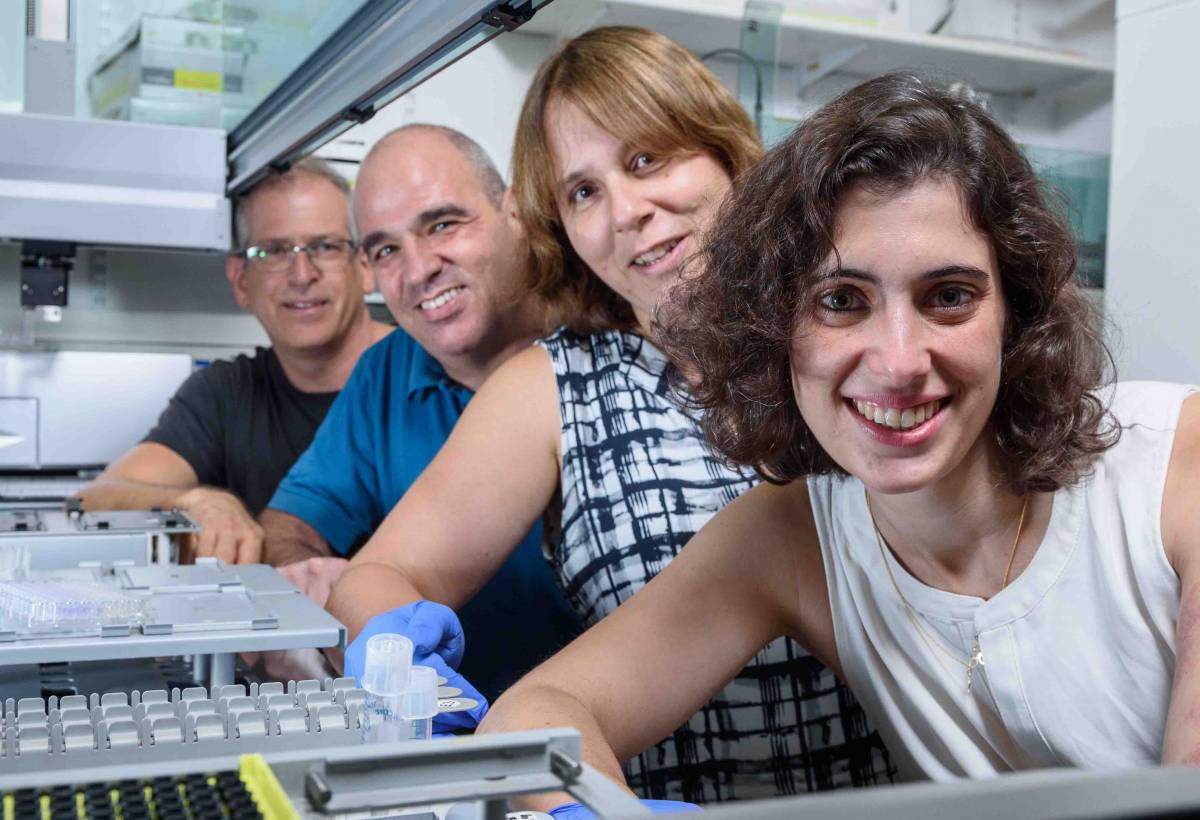Are you a journalist? Please sign up here for our press releases
Subscribe to our monthly newsletter:

Bertrand Russel famously railed against the idea that idleness is the root of all evil, writing in his essay In Praise of Idleness that: “There is far too much work done in the world…immense harm is caused by the belief that work is virtuous.” The bacteria in the lab of Prof. Uri Alon of the Weizmann Institute of Science appear to support this philosophical outlook. In research recently published in Cell Reports, Alon and his group show that bacteria that take it easy once in a while are more resilient to changes in their environments.
Work for a bacterium begins with seeking food, and it extends to breaking its food down and then using the resulting materials to build itself, grow and divide. Like all of us, the cell has limits in its capacity for work, and thus it must distribute its energy between its catabolic activities – taking in and processing nutrients – and its ribosomal activities – producing proteins. In other words, it has to find a balance between breaking down and building up.
– a surprising finding that implies the bacteria were wasting resources
The external conditions should theoretically, determine how the bacterium allocates its internal resources. For example, if it has plentiful source of easy-to-digest sugar, it might make fewer pumps for taking in the sugar but invest more in building and growing. The bacterium in a nutrient-poor environment, in contrast, might need to expend more of its energy on finding food while cutting back on expansion.
In previous research in Alon’s lab in the Institute’s Molecular Cell Biology Department, postdoctoral fellow Dr. Benjamin Towbin had managed to genetically engineer bacteria in which he silenced the regulatory system for dividing up internal resources. The researchers then directed this allocation themselves and compared the growth to that of regular bacteria, finding that bacteria do tend to work at the optimum in any given environment. The case for busy bacteria appeared to be closed.
But then research student Yael Korem-Kohanim showed up with some questions: “I’m trained in physics,” she says, “and the interesting question to me was how a bacterium can calculate an optimum allocation of resources when the only variable it can measure is the amount of ‘building blocks’ it has.” Korem-Kohanim created a mathematical model for this allocation, but the growth curves it generated did not match those of the previous study. “The measured growth rate was not as steep as the model of bacteria working at full capacity would suggest,” she says. “Instead, they seemed to show that the pumps and ribosomes had some down time – a surprising finding that implies the bacteria were wasting resources.”
The scientists then considered a somewhat heretical explanation for this observation: The bacteria hold back, in the process conserving some of their resources so that if their environment should change, they would be able to make the necessary adjustments rapidly. “If the bacterium has used up its resources in breaking down nutrients and building proteins, it need take time to regain its balance when its fortunes change,” says Korem-Kohanim. “But if it has idled a bit, saving up some extra ribosomes, for example, and suddenly finds itself in sugar-rich surroundings, it will be able to immediately take advantage of the situation and grow much faster.”
The wisdom of biology suggests that conserving some resources might be a better strategy
To test the hypothesis, the researchers grew bacteria in a nutrient-poor medium and then transferred them to a nutrient-rich one. The growth rates increased sharply within minutes after the move, picking up the pace until they reached a new balance within the second environment. From this, the group developed another model and a basic formula to describe what happens when bacteria move between environments: The rate of growth is equal to the geometric average of the growth rate that characterizes the original environment and the growth rate that characterizes the new environment.

Staff Scientist Anat Bren, who participated in the research says: “The idea that previous conditions strongly influence the growth rate of bacteria is new and surprising.”
Korem-Kohanim points out that the model that describes bacterial growth is relevant for other systems as well. “There is a trade-off between optimally exploiting all the available resources and preserving the ability to adapt. The capacity to respond rapidly may be significant enough for bacteria – letting them grow just a bit faster in the new conditions and giving them an edge – that it became a part of the cells’ makeup.”
The researchers say that the findings might even have something to add to the fields of economics and personnel management. In other words, Russell may have been on to something in his praise of idleness. Korem-Kohanim: “If your calendar is full of back-to-back meetings, you won’t have time to sit and talk with someone who shows up with an interesting proposal. If you are a bit lazy, you will have that time.” Alon adds: “Economies in our world are built on the idea that they need to grow as fast as possible, all the time. The wisdom of biology suggests that conserving some resources might be a better strategy. That is a message we all might need to hear.”
Prof. Uri Alon's research is supproted by the Kahn Family Research Center for Systems Biology of the Human Cell; the Braginsky Center for the Interface Between Science and the Humanities; the Rising Tide Foundation; the European Research Council; and Katy and Gary Leff. Prof. Alon is the incumbent of the Abisch-Frenkel Professorial Chair.